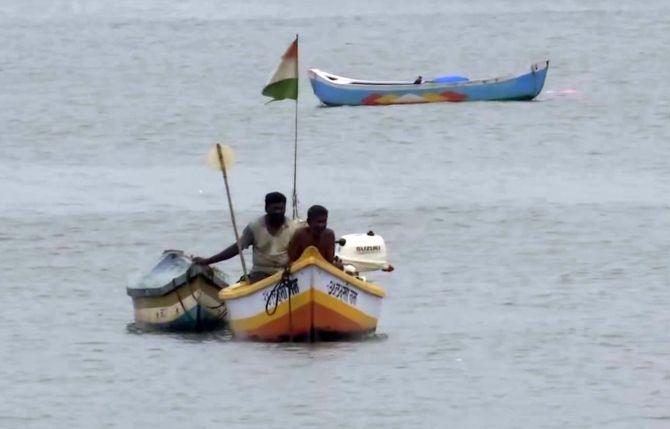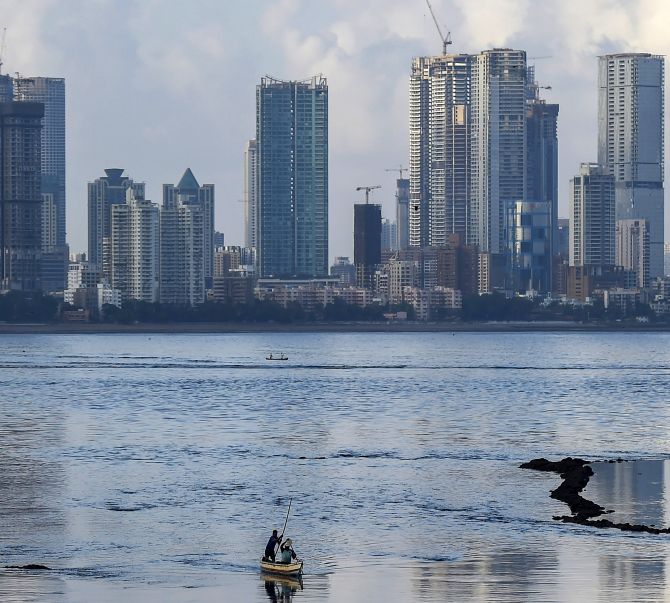India Meteorological Department on Tuesday said that tropical cyclone Nisarga has headed for the Maharashtra coast, and is going to make landfall on June 3 close to Mumbai.

"Depression over east-central Arabian Sea lay near latitude 14.4N and longitude 71.2E about 300 km west-southwest of Panjim, 550 km south-southwest of Mumbai and 770 km south-southwest of Surat," the IMD added.
The organisation has advised, "fishermen not to venture into the southeast Arabian Sea, Lakshadweep area and along and off Kerala coast during next 48 hours; east-central Arabian Sea and along with off Karnataka-Goa coasts till June 3 east-central the Arabian Sea along and off Maharashtra coast and the northeast Arabian Sea along and off Gujarat coast during June 3-4."
Thirty-three National Disaster Relief Force teams have been deployed in the coastal districts of Maharashtra and Gujarat in view of the impending Cyclone Nisarga, the chief of the federal contingency force said on Tuesday.
In a video message, NDRF Director General S N Pradhan said, "Gujarat and Maharashtra have 11 and 10 teams respectively and they are being deployed in the coastal districts facing the Arabian Sea".
On Gujarat's request, five more teams are being airlifted to the state from Punjab, he said.
Gujarat will have a total of 17 NDRF teams, including two on standby, and neighbouring Maharashtra 16 teams, including six on standby, he said.

"This will constitute a total of 33 teams in the two states," the officer said.
An NDRF team has a strength of about 45 personnel and each unit is equipped with tree and pole cutters, communication gadgets, inflatable boats and a small basic medical unit.
Pradhan said the teams on ground have begun the process of evacuation and have launched an awareness drive among the locals.
"Although this is not an extremely severe cyclone, all precautions are being taken with the basic principle in mind that while we expect the best, we must prepare for the worst," he said.
Before the cyclone
>> Ignore rumours, Stay calm, Don't panic
>> Keep your mobile phones charged to ensure connectivity; Use SMS
>> Listen to radio, watch TV, read newspapers for weather update
>> Keep your documents and valuables in waterproof containers
>> Prepare an emergency kit with essential items for safety a
>> Secure your house, carry out repairs at home, don't leave sharp objects loose
During/after the cyclone (if indoors)
>> Switch off electrical mains, gas supply
>> Keep doors and windows shut
>> If your house is unsafe, leave early before the onset of the storm
>> Listen to a radio/transistor
>> Drink boiled/ chlorinated water
>> Rely only on official warnings
-- With inputs from PTI